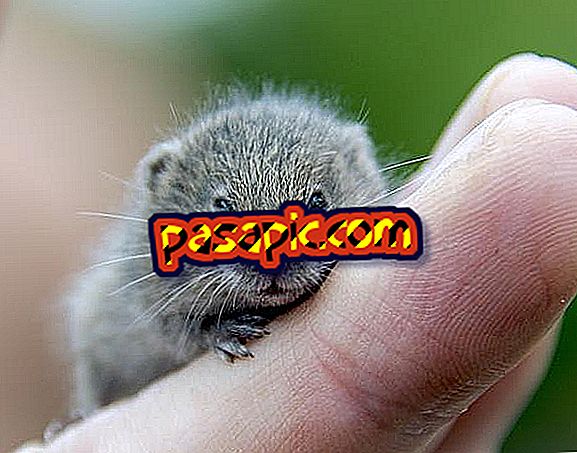What a dog with gastroenteritis can eat

Gastroenteritis is a well-known disease for humans that can also be suffered by our dog. Usually the dogs manifest this condition after ingesting plants or foods toxic to them, which causes stomach and intestinal inflammation and the annoying symptoms that accompany it. Although some breeds such as the German shepherd or the boxer are more likely to suffer from this condition, any dog regardless of age can suffer it. The feeding is essential to guarantee that our animal improves, for that reason in .com we explain what a dog with gastroenteritis can eat to accelerate the recovery of your pet.
Causes of gastroenteritis in dogs
Once your dog has been diagnosed by the veterinarian with gastroenteritis, it is very important to understand the causes of this disease to prevent it from recurring. In addition to the toxic plants and foods that can generate inflammation in your pet's stomach and intestine, there are other habits that can lead to this disease:
- Eating garbage or rotten food, it is very important that you educate your dog to prevent it from doing so.
- Eat raw or poorly prepared foods that may contain bacteria that cause the disease. The best thing is that your dog has a diet based on feed and special pet food, if you choose to cook your own food you must ensure that the meats are always well prepared and that they are properly handled.
- Eating toys or strange objects, prevents your dog from chewing everything and if it is in the process of teething purchase appropriate toys to avoid discomfort and ensure your health.
- The contagion with bacteria or fungi can also cause this disease.
In cases of common gastroenteritis, avoid feeding it
The common gastroenteritis in dogs does not represent a danger for the life of your animal, but it is important to take good care of it so that it recovers soon and to avoid severe dehydration. The diagnosis of a veterinarian is important, but if it is not the first time that your dog suffers from this condition surely you will know how to recognize it and you will be able to act.
It is important that during the two days following the episode you avoid feeding your dog, in this way you guarantee that the inflammation of the stomach and intestine is reduced and the symptoms disappear. Although you do not give solid food if you must moisturize and nourish it as we explained in the next step.
Constant hydration
A dog with gastroenteritis has to stay adequately hydrated, as vomiting and diarrhea cause the loss of fluid and mineral salts that can put your pet's life at risk. It is possible that the veterinarian hydrate the animal intravenously, but at home you must also provide the necessary care, so we recommend that you:
- Keep your dog always fresh and clean water, change it twice a day to encourage the animal to drink.
- If your dog does not want to drink water, offer him ice cubes for the lama, this will help him to be hydrated.
- Adding a little sugar to the water will also help attract your pet and encourage her to drink.
- To nourish and hydrate, you can prepare a homemade chicken broth with water, chicken, rice and carrot, without salt, oil or any seasoning. Strain the broth, separating the chicken to give it to the animal later, and serve it in its water container.
If the dog shows signs of severe dehydration, you should take it to the veterinarian immediately.

What a dog with gastroenteritis can eat
Once the first two days have elapsed based on liquid and broth, it is best to start with a soft diet until the animal is fully recovered. You can choose:
- Give your animal cooked chicken without skin, without skin or bones and prepared without salt or seasonings.
- White rice or rice water in the early stages will also help keep your pet nourished. You can mix the shredded chicken with a little white rice.
- Canned dog food, softer and with a greater contribution of liquid, can be an alternative after two or three days.
When your pet eats with appetite again and does not vomit or have diarrhea, you can return to your usual diet, however take the precautions to reduce those negative habits of your pet that may increase the possibility of suffering from gastroenteritis again. If in doubt, consult the veterinarian.



